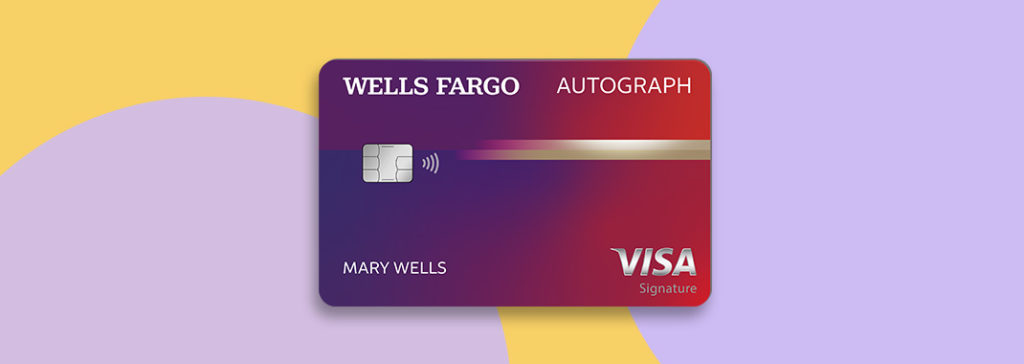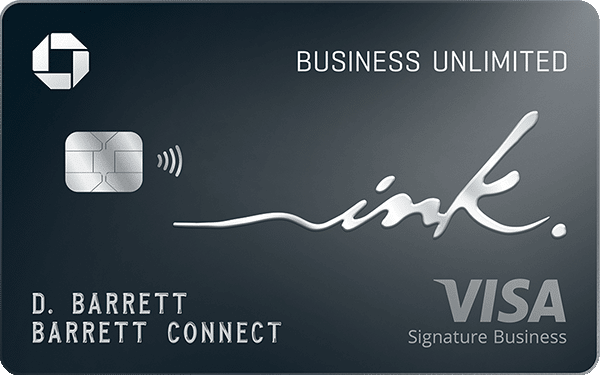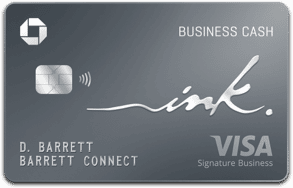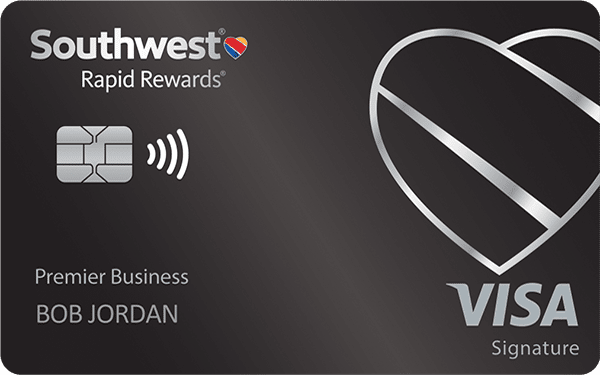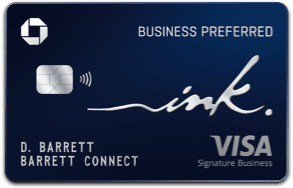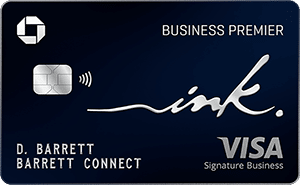Most products on this page are from partners who may compensate us. This may influence which products we write about and where and how they appear on the page. However, opinions expressed here are the author's alone, not those of any bank, credit card issuer, airline or hotel chain.
As a small business owner, building credit for your business is a game-changer. It can open doors to financing, better terms with suppliers and even lower insurance premiums. One of the most effective tools to establish and strengthen your business credit is a business credit card.
Below, we cover the steps you can take to start building credit for your business and help you find the perfect credit card to fuel your company's growth.
1. Register Your Business
First, choose the appropriate legal structure for your business (e.g., sole proprietorship, partnership, LLC or corporation):
- Consult a legal or financial expert to determine the best structure for your specific needs.
- Obtain an EIN from the IRS for tax purposes and to establish your business identity. Apply online for free at the IRS website.
- Acquire necessary licenses and permits to operate legally and establish credibility. Check with your local and state governments for specific requirements.
2. Open a Business Bank Account
Opening a business bank account separates personal and business finances helps you track expenses and income for tax purposes, and it builds a banking relationship for future financing needs. Many bank accounts are designed with business owners in mind, and some even offer sign-up bonuses, so you if you compare accounts, you might find one that's a great fit for your business.
 Related Article
Related Article
5 Best Business Bank Account Bonuses and Promotions (2025)
3. Register With Credit Bureaus
As with personal credit, businesses have credit reporting agencies as well. The major credit bureaus for businesses are Dun & Bradstreet, Experian Business and Equifax Small Business. Business credit scores are determined based on factors such as payment history, credit utilization and business age.
Request a free DUNS (Dun & Bradstreet) Number, a unique identifier for your business. This number is required to establish a credit profile with Dun & Bradstreet. You can also register with Experian and Equifax. You don't have to register with Experian and Equifax, but it's worth checking that your business information is accurate and up to date with those organizations.
4. Establish Trade Credit With Partners and Vendors
Establish relationships with suppliers that offer trade credit, which allows you to buy goods and services on credit. Ask your suppliers to report your payment history to credit bureaus. You can also negotiate payment terms. Work with suppliers to establish favorable payment terms, such as net 30 or net 60. Make timely payments to build a positive payment history.

6 Best Banks for Small Businesses
5. Choose the Right Business Credit Card
Picking the ideal business credit card can be a make-or-break part of strengthening your credit profile. On top of helping you build credit specifically related to your business, it can help you separate your finances from your personal accounts. Having a business credit card will make tracking your purchases easier throughout the year and can be a big time-saver around tax time.
Here are a few elements to consider:
- Interest rates: Compare annual percentage rates (APRs) to find the most competitive rates.
- Fees: Evaluate various fees associated with business credit cards, such as annual fees late payment fees and foreign transaction fees. Choose a card with minimal fees to reduce your overall costs.
- Rewards programs: Consider cards that offer rewards programs, such as cash back, travel rewards or points for every dollar spent. Select a card with rewards that align with your business spending patterns to maximize the benefits.
- Credit limits: Review the credit limits offered by different card issuers. A higher credit limit can improve your credit utilization ratio, which positively impacts your business credit score.
Recommended Business Credit Cards
| Credit Card | Rewards Rate | Annual Fee | Intro Bonus | Learn More |
|---|---|---|---|---|
|
|
1.5%Cashback
Earn unlimited 1.5% cash back on every purchase made for your business. The advertised rewards type is cash back, but it’s important to note that you’re technically earning Chase Ultimate Rewards points (which can then be converted to cash back). |
$0 |
$750Cash Bonus
Earn $750 bonus cash back after you spend $6,000 on purchases in the first 3 months from account opening. |
Apply Now |
|
|
1% - 5%Cashback
Earn 5% cash back on your first $25,000 spent in combined purchases at office supply stores and on internet, cable and phone services each account anniversary year. It also offers you 2% cash back on your first $25,000 spent in combined purchases at gas stations and restaurants each account anniversary year. |
$0 |
$750Cash Bonus
Earn $350 when you spend $3,000 on purchases in the first three months and an additional $400 when you spend $6,000 on purchases in the first six months after account opening |
Apply Now |
|
|
1x - 3xPoints
Earn 3 points per $1 spent on Southwest® purchases. Earn 2 points per $1 spent on Rapid Rewards® hotel and car rental partners. Earn 2 points per $1 spent on local transit and commuting, including rideshare. Earn 1 point per $1 spent on all other purchases. |
$99 |
60,000Southwest Rapid Rewards Points
Earn 60,000 points after you spend $3,000 on purchases in the first 3 months your account is open. Dollar Equivalent: $840 (60,000 Southwest Rapid Rewards Points * 0.014 base) |
Apply Now |
|
|
1x - 3xPoints
Earn 3x points on the first $150,000 of combined spending in a number of key business categories |
$95
This fee includes extra cards for authorized users, such as employees, at no additional charge. |
90,000Chase Ultimate Rewards Points
Earn 90,000 bonus points after you spend $8,000 on purchases in the first 3 months from account opening. Dollar Equivalent: $2,070 (90,000 Chase Ultimate Rewards Points * 0.023 base) |
Apply Now |
What Is Business Credit
Business credit refers to a company's ability to borrow money or access financing based on its creditworthiness. The purpose of business credit is to demonstrate your financial trustworthiness to lenders, investors and suppliers. Plus, building business credit can unlock improved financing options in the future.
Keep a close eye on your business credit and maintain a strong credit profile. Regularly monitoring your credit reports will help you identify any errors that may negatively impact your credit score. To track your business credit, request credit reports from the major business credit bureaus—Dun & Bradstreet, Experian Business and Equifax Small Business.
While it’s essential to work with suppliers who report to major credit bureaus, consider diversifying your vendor relationships by working with smaller, niche bureaus as well. Building credit with multiple bureaus can help create a more comprehensive and robust credit profile.
Most bureaus offer paid subscription plans that provide continuous credit monitoring, alerts and access to your credit scores. By actively checking your business credit, you'll be in the driver's seat to address issues promptly, ensuring your business remains in optimal financial health.
Quick Tip
Business credit scores range from 0-100 for the Dun & Bradstreet PAYDEX Score, and 300-850 for the Experian Intelliscore Plus and Equifax Business Credit Score. A higher score represents a lower credit risk.
Why You Should Separate Personal and Business Credit
Establish your business credit profile independently to improve your borrowing power as a business owner. It can't be stressed enough how important it is to keep personal and business finances separate to protect your personal credit score and limit liability. Here are the core reasons:
- Protect personal credit: Mixing personal and business finances can negatively impact your personal credit score, potentially making it harder to secure personal loans or favorable interest rates.
- Limit personal liability: Separating your business and personal credit helps protect your personal assets from potential business liabilities or losses, particularly if your business is structured as an LLC or corporation.
- Strengthen business credit: Establishing a separate business credit profile allows you to build credit independently, improving your borrowing power as a business owner.
- Simplify financial management: Keeping business and personal finances separate makes it easier to track business expenses, income and financial performance, which can lead to more informed financial decision-making.
- Tax benefits: Separating personal and business expenses can lead to more accurate tax deductions, helping you claim all eligible deductions and comply with tax regulations.
- Enhance credibility: A distinct business credit profile demonstrates financial trustworthiness to lenders, suppliers and investors, which can help boost your business's credibility and reputation.
- Access to better financing options: A strong business credit profile unlocks better financing options, including loans and lines of credit, that can help your business grow and succeed.
 Related Article
Related Article
How to Dispute Errors on Your Credit Report
Best Practices for Business Credit Cards
Consistently paying off your credit card charges is crucial to maintaining and enhancing your business credit profile. Make timely payments, maintain a low credit utilization ratio, monitor your credit activity regularly and keep your business information updated with credit bureaus.
Let's unpack the details on the leg work each of these involves:
- Make timely payments: Make all payments on time to establish a positive payment history, which significantly impacts your business credit score.
- Maintain a low credit utilization ratio: Keep your credit utilization ratio below 30% to demonstrate your ability to manage credit. A low credit utilization ratio has a positive effect on your credit score.
- Regularly monitor credit activity: Monitor your credit card activity and statements to detect any fraudulent charges or errors. Promptly report any discrepancies to your card issuer.
- Update business information with credit bureaus: Ensure your business information is accurate and up to date with all credit bureaus. Regularly review your credit reports and request corrections for any errors or discrepancies.
How Business Credit Cards Boost Credit
Business credit cards can work wonders for your company's credit profile. By establishing a solid payment history, paying your bill on time and seizing opportunities for higher credit limits, your business credit card can play a significant role in fortifying your credit profile and boosting your financial credibility. Here's how:
- Establishing a payment history: Using your business credit card and making timely payments helps establish a strong payment history, a critical factor in determining your business credit score.
- Demonstrating credit management: By maintaining a low credit utilization ratio and paying your credit card bills consistently, you show lenders and suppliers that you are a low credit risk.
- Opportunities for higher credit limits: As you build your business credit and demonstrate credit management, your credit card issuer may increase your credit limit, further improving your credit utilization ratio and credit score.
If you've decided getting a business credit card is a smart move for your operation, check out the cards below, which offer a range of perks and rewards that fit many business owners' needs.
Compare Chase Ink Business Credit Cards
| Credit Card | Intro Bonus | Annual Fee | Rewards Rate | Learn More |
|---|---|---|---|---|
|
|
$750Cash Bonus
Earn $750 bonus cash back after you spend $6,000 on purchases in the first 3 months from account opening. |
$0 |
1.5%Cashback
Earn unlimited 1.5% cash back on every purchase made for your business. The advertised rewards type is cash back, but it’s important to note that you’re technically earning Chase Ultimate Rewards points (which can then be converted to cash back). |
Apply Now |
|
|
$750Cash Bonus
Earn $350 when you spend $3,000 on purchases in the first three months and an additional $400 when you spend $6,000 on purchases in the first six months after account opening |
$0 |
1% - 5%Cashback
Earn 5% cash back on your first $25,000 spent in combined purchases at office supply stores and on internet, cable and phone services each account anniversary year. It also offers you 2% cash back on your first $25,000 spent in combined purchases at gas stations and restaurants each account anniversary year. |
Apply Now |
|
|
90,000Chase Ultimate Rewards Points
Earn 90,000 bonus points after you spend $8,000 on purchases in the first 3 months from account opening. Dollar Equivalent: $2,070 (90,000 Chase Ultimate Rewards Points * 0.023 base) |
$95
This fee includes extra cards for authorized users, such as employees, at no additional charge. |
1x - 3xPoints
Earn 3x points on the first $150,000 of combined spending in a number of key business categories |
Apply Now |
|
|
$1,000Cash Bonus
Earn $1,000 bonus cash back after you spend $10,000 on purchases in the first 3 months from account opening. |
$195 |
Up to 2.5%Cashback
Earn unlimited 2.5% total cash back on purchases of $5,000 or more and unlimited 2% cash back on all other business purchases. |
Apply Now |
Building Credit for Your Business
Building credit for your business is a vital ingredient for growth and expansion. By mastering the basics of business credit, establishing a solid business credit profile and paying your card bill on time, you can propel your business toward success. Apply for a business credit card today and kickstart your journey to building business credit, unlocking new opportunities and benefits along the way.

